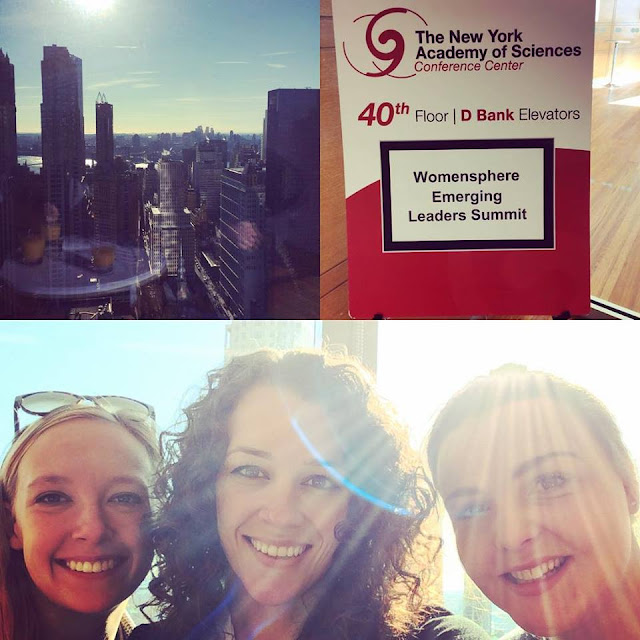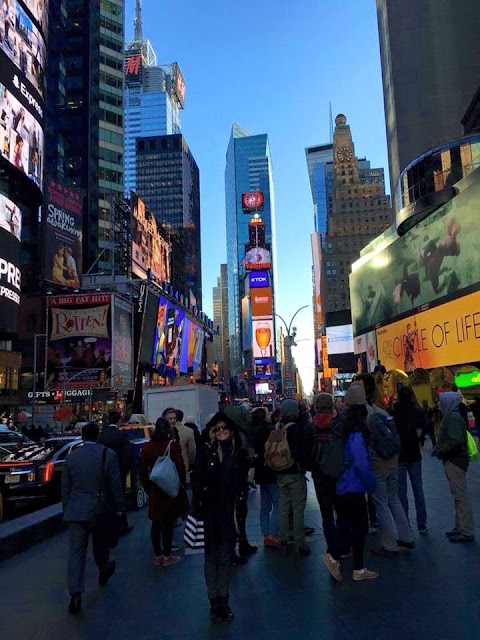CECS and the City Episode 2: SDG Number Five
CECS and the
City Episode 2: SDG Number Five
This is me doing me best to smile through the cold NY weather.
When
you get a group of really ambitious people together, it can be the perfect dose
of motivation for a young person. On day 2 of the conference we heard from some
women and men who had achieved a lot. There was Lord Dr Michael Hastings (Global
Head of Citizenship at KPMG), Senator Imani Duncan-Price from Jamaica, Jacques
Philippe Piverger (founder and CEO of the Soleil Group) and many more people
who were frustratingly successful and really eloquent speakers too.
We
spent the morning talking about the UN’s Sustainable Development Goals (SDGs)
while it snowed outside (dogs were wearing snow boots to walk around the city!)
The SDGs are the 17 global targets released by the UN in 2015, and are the
successors to their Millennium Development Goals (MDGs). Each of the 17 is
important on it’s own, but there’s a huge crossover and it would be hard to focus
on just one at a time.
Number
1 is a biggie: no poverty. If you’re pessimistic about this one, you might be
surprised to know that we’re halfway to eliminating poverty. Yep. That’s a huge
deal! It’s something we need to celebrate for sure. BUT, you wouldn’t stop
halfway, right? The following video from the UN is pretty awesome and makes
this point. It features some interesting facts plus some celebs like Usain Bolt
and Coldplay, I definitely recommend you take the 2 minutes to watch it.
Some
of my favourites are number 4 (quality education), 6 (clean water and
sanitation), and 17 (partnerships for the goals). Seventeen is important
because it makes people focus on doing things together, and that’s a really
nice (but also highly effective) way to go about it. The best part is that
under each of these goals are really specific targets that can be measured, so
they’re not just some vague areas of interest that the UN threw together, these
are some serious goals with serious targets.
Number
5 is gender equity. In the room of highly ambitious women, this one led to a
big discussion on equal pay, having more women CEOs and breaking that glass
ceiling. It was really interesting and, of course, really important to hear.
These women were very passionate about these issues and about creating
opportunities for women. But there was a
really powerful moment later in the morning that made us all take a huge step
back from this. In the middle of the fired
discussion, Lord Hastings said to us all “yes, these things are really
important, but there is this preoccupation with acquisition of position. We
need more than that. Girls need education, we need to eliminate poverty. Where
is the social justice for those who can’t get to the first base point? Let’s
start at the bottom and not the top”.
Damn.
We had all been so preoccupied with number 5 and how it related to ourselves,
but there are 16 other goals and billions of women on the planet that we were
ignoring. I realised that empowering women is essential to meeting all the
other goals, and women in developing countries need to be a huge part of number
5.
Jamaican
Senator, Imani Duncan, described it really nicely and gave me my take-away
message for the day in one line. She said “number five, gender equality, is the
thread that runs through all of the goals”.
It
was exactly the shift in perspective that I think we all needed.
Emily









